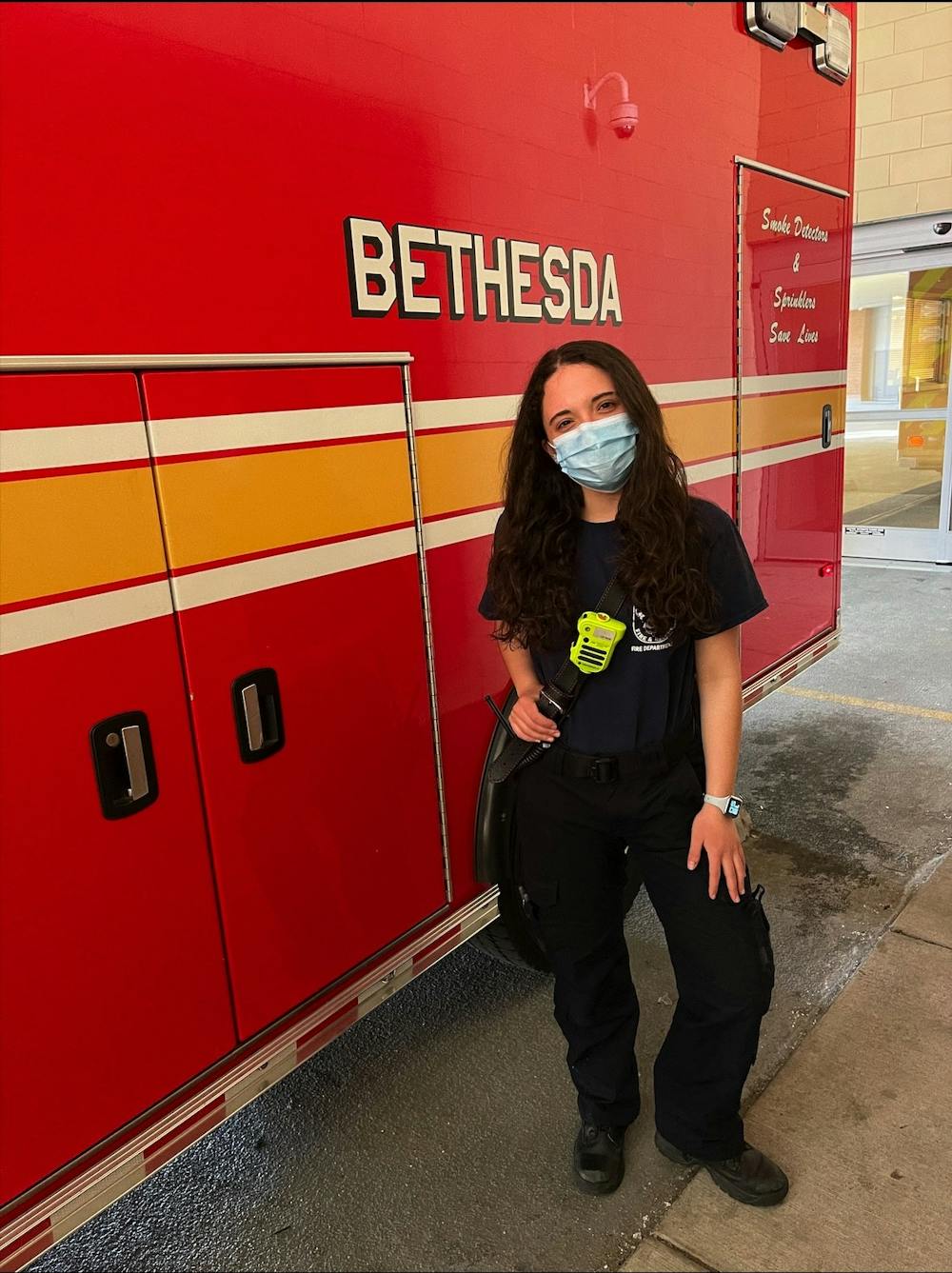How do you manage an essential job, stay safe and healthy, save time to sleep and keep on top of coursework during a pandemic?
These are some of the questions faced by American University students employed as essential workers during the first year of the coronavirus pandemic.
Students who have worked in law enforcement, emergency medical service, retail and medicine find themselves among a larger group of AU students looking to serve the greater Washington community.
Henry Clapp, a senior in the School of Public Affairs majoring in justice and law, volunteered as an EMT at the beginning of the pandemic and is training to become a police officer in the D.C. area.
“The time commitment, generally speaking, is 40 hours a week,” Clapp said. “When the Capitol [riot] happened and some of the other large protests, they changed our schedule, and for most of January, we were put on 12-hour shifts and days off were canceled.”
Clapp planned to graduate in December but delayed his graduation to May to accommodate his full-time police officer training program. According to Clapp, the one-semester delay was worth it because being an essential worker means he can help people through some of their worst days.
Tez Byrnes, a College of Arts and Sciences senior majoring in public health, also works in emergency services. She has worked as an EMT and is training to become a firefighter with the Bethesda Fire Department, she said.
Although there has been some overlap between AU’s public health program and Byrnes’ work –– like when she used her EMT position to satisfy an internship requirement –– her course load still requires diligent use of limited and often unpredictable time.
“If we aren’t on calls at our station, we do have downtime, so the time is mine,” Byrnes said. “It’s a really great time to work on my schoolwork and has always been a really great time to study if the time presents itself.”
Having sufficient time for coursework has also been challenging for Michelle Hadad, a College of Arts and Sciences junior majoring in health promotion.
At the beginning of the pandemic, Hadad had an 18-credit class load and worked overtime, picking and packing online orders at a Virginia grocery store, which ended up hurting her GPA, she said.
“I mean mentally, I was just exhausted,” Hadad said. “I had no time to even sleep eight hours a night because I was staying up doing homework because I came back late from my job.”
Now, Hadad works part-time at another Virginia grocery store, where she handles the paperwork involved with their COVID-19 vaccination program, while also training to become a certified pharmacy technician. However, the stress of an essential job is still a significant burden.
The fear of contracting the coronavirus at work and infecting her father, a doctor or the elderly hospice patient she helps has worried her, Hadad said.
Her essential work, along with Byrnes’ and Clapp’s, represents a trend in community service at AU, according to data cited by Maren Burling of the University’s Center for Community Engagement and Service.
Burling helps manage AU’s Community Service-Learning Program that allows students in some courses to earn additional credit if they complete 35 hours of service work and five hours of reflection, according to the program’s website. Since the pandemic started, much of the CSLP’s work has gone virtual, allowing students to contribute without in-person participation.
Participation in the program has more than doubled over last fall, and students are on track to complete about 1,200 hours of service work this semester, according to Burling and a CSLP report.
“In terms of essential work and community engagement work during your college years, I don’t think there’s any better way to get to know the community in which you live,” Burling said.





